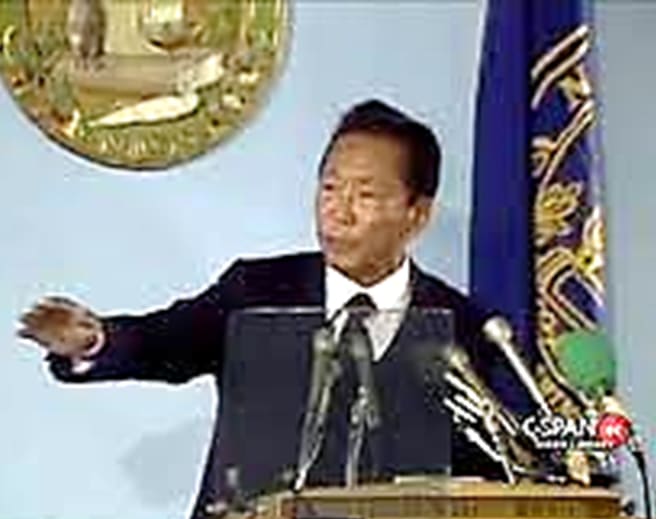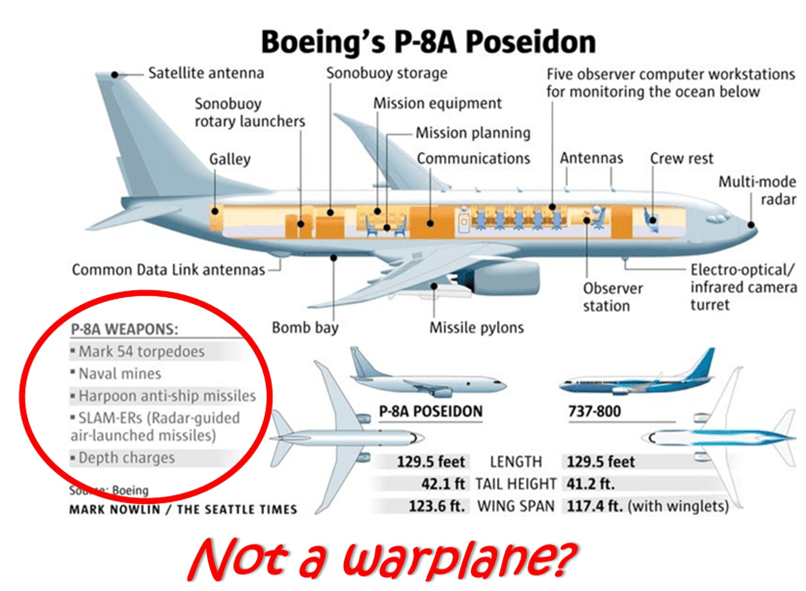Reckless Versions of Mutual Defense Treaty Court Preemptive Attack on the Philippines

The American lying machine is in full thrust, and now it is putting our country in clear and present danger of playing the American deep-state playbook on wargames that can attract a volent preemption by either China or North Korea.
I almost fell down my chair when I read a Manila Times report that Lindsey Ford, deputy assistant secretary of the US Department of Defense, gave the assurance to Representative Kim Young of California, chairman of the subcommittee on Indo-Pacific of the House Committee on Foreign Affairs. last September 29, that the United States will “surely invoke” its Mutual Defense Treaty (MDT) with the Philippines if an armed attack against the country’s “assets, including those of the Philippine Coast Guard (PCG), is committed in the South China Sea.”
This echoes self-proclaimed expert Jay Batongbacal’s testimony before our Senate hearing on the defense budget two weeks ago, when Senator Robin Padilla cornered him into admitting first he was in favor of the US Navy Poseidon 8A’s participation in our coast guard’s “civilian” resupply mission, second that he did not consider that an escalation of the tensions in the Spratlys, and third he rationalized our being a US treaty ally as justification.
Batongbacal, it seems, is more deeply-involved with the Americans that being just as an adjunct of the Center for Strategic and International Studies in Washington DC, through its agent in Manila the Stratbase Albert del Rosario Institute that supports his role in the University of the Philippines Institute for Maritime Affairs and Laws of the Seas.
Was it a coincidence that he was recently in Canada at a time when President Volodymyr Zelensky is also visiting Canada and the United States, and then his views are now being echoed by the Pentagon at Capitol Hill?
In response to Kim’s question, “Is the US prepared to back up its Mutual Defense Treaty with military force? And what message would it send to other countries in the region if the US doesn’t respond forcefully enough to an event that triggers that treaty?”, Ford said “We have said repeatedly and will continue to say that we stand by those commitments,” noting that Washington’s military partnership with Manila, as “a bedrock part” of the US’ security in the Indo-Pacific and globally.
US – unreliable ally
Ford was of course misleading his Congress, obviously for more appropriations.
It is only now that the Enhance Defense Cooperation Agreement foreseeing expiry on April 28 next year that the United States recovered from its alzheimers forgetting its obligations as a treaty ally.
In 2012, in a classic diplomatic faux pas, the Americans were key to a misunderstanding between Washington DC and Manila that led to the loss of Scarborough Shoal from Philippine control.
From 2013, the Americans just stood and watched while China reclaimed eight islands in the South China Seas. By 2018, the construction of the islands has been completed and three island airports of Meiji Reef, Zhubi Reef, and Yongshu Reef have been completed.
In 2016, the U.S. State Department halted the planned sale of some 26,000 assault rifles to the Philippines’ national police after a US senator opposed it
In 2017, the Americans delayed delivery of armaments for the Armed Forces of the Philippines to confront the Maute Group of terrorist Muslim rebels in Mindanao despite being ordered and paid for in advance. The conflict that lasted for five months dislocated close to a half-a-million residents. It took the US two more years to normalize deliveries.
In 2021, it was late by five months in delivering Covid-19 vaccines that were ordered and paid by the Philippine government.
Abuse of Mutual Defense Treaty
Article I of the treaty – each party is to settle international disputes in a peaceful manner so that the international peace is not threatened, and to refrain from the threat of the use of force in any manner that is inconsistent with the purpose of the United Nations.
We make no bones about it – the insertion of our Armed Forces and a foreign war plane in our present South China Sea disputes is an act of war that we provoke.
Article II states that each party either separately or jointly through mutual aid may acquire, develop and maintain their capacity to resist armed attack.
We are not under explicit or implicit threat of any attack by a foreign country.
Article IV states that an attack on either party will be acted upon in accordance with their constitutional processes and that any armed attack on either party will be brought to the attention of the United Nations for immediate action.
First, the treaty does not have a provision on “automaticity”. The participation of the United States will have to be determined by a declaration of war by its Congress.
No less than President Ferdinand Edralin Marcos Sr, in answering questions from the National Press Club in Washington DC on September 17, 1982, exclaimed this famous quip:
“The United States is not necessarily bound to immediately react because the provision of the Mutual Defense Pact is that you will immediately take steps as is necessary to meet the contingency in accordance to your constitutional processes.
“What does that mean? That you go to (your) Senate and House Representatives.
“What does that mean?
“Delay while we are already dying there.”
Second, there is no common definition of terms.
Our claim against China is anchored on sovereign rights for use of underwater resources within a 200-nautical mile “exclusive” economic zone on the basis of one specific treaty UNCLOS that was only adopted in 1982 and an impaired arbitral ruling in 2016.
On the other hand, China’s claim is for sovereignty and ownership on the basis of historic rights, significantly defined in a statutory construction of history from the first Sino-Japanese War from 1894 to 1895, the Second Sino-Japanese War of 1937, into World War II, and the Cairo and Potsdam Declaration of 1943 and 1945 respectively, settled in two treaties of San Francisco in 1951 and Taipei in 1952, on to perfection by the United Nations General Assembly Resolution 5728 in favor of the Peoples Republic of China in 1971.
In this respect, the Philippines’ sovereign rights cannot protrude China’s sovereign territorial seas, without China agreeing to it.
Article V defines the meaning of attack and its purpose which includes all attacks by a hostile power will be held as an attack on a metropolitan area by both parties or on the island territories under its jurisdiction in the Pacific or on its armed forces, public vessels or aircraft in the Pacific.
We have a problem here because our metropolitan area and island territories are those within the limits stipulated by the Treat of Paris. Even Scarborough Shoal is outside those limits. The Kalayaan Island Group, was not accepted as an archipelago or classified as a regime of islands by the arbitral award American boys tout the world with.
Our claim is on the basis of sovereign rights, not sovereignty.
Disabuse your minds – against false flags of the Nonoy Aquino and Bongbong Marcos governments on our claimed 200 nautical miles of exclusive economic zones, sovereign rights do not make the foregoing areas our territory.
On June 23, 2011, when a correspondent from ABS-CBN this question: “What will America do if China attacks Filipino forces in the Spratly Islands?” Secretary of State Hillary Clinton’s cautious reply was: “Well, as to your first question, the United States honors our Mutual Defense Treaty and our strategic alliance with the Philippines. I’m not going to discuss hypothetical events, but I want to underscore our commitment to the defense of the Philippines.”
Justified preemptive attack
Actually, an actual armed attack is not even necessary.
The Philippines, more specifically, the EDCA bases, would become prime targets for retaliation or attacks because of US military assets and the presence of foreign troops.
Melissa Loja, a senior research fellow at the Integrated Development Studies Institute and an expert on international law, said that the EDCA has created a “security dilemma” for the Philippines. She said under the agreement, the Philippines has no right to inspect, much less demand permission for the positioning of weapons.
“The same threat to our country would still exist, because the US can preposition weapons in (any location) and magnet a counterstrike (or instigate) preemptive strike from any of the elements of the United States,” she added.
Under this scenario, Loja said that the presence of US military weapons means the Philippines can no longer be considered a “neutral state” and will become a legitimate target in an international conflict.
According to Professor of Government and Foreign Service at Georgetown University Anthony C. Arend, in his paper “International Law and the Preemptive Use of Military Force” published by the Washington Quarterly, preemptive strike is “the use of military force in advance of a first use of force by the enemy”- it is a first strike in anticipation of receiving an attack from an opponent in the near future.
The United States has used notorious for using this excuse for attacking many countries around the globe. Foremost of which is the attack on Iraq for fictitious “weapons-of-mass-destruction”.
While the United Nations Charter expressively forbids the use of military force in international relations with aggressive war declared illegal following the Nuremberg International Military Tribunal, the exception in principle is in cases of self-defense, a state is not obliged to suffer the first blow of an attack before it may be permitted to respond.
What does this mean? A state (China or North Korea) may launch an attack preemptively against another (the Philippines) if it perceives there is an imminent threat (coming from the American EDCA bases).
For the original CSPAN coverage of the full speech of President Marcos Sr. at the National Press Club, watch https://www.c-span.org/video/?88357-1/philippine-issues
Adolfo Quizon Paglinawan
is the anchor of Ang Maestro – the Unfinished Revolution at Radyo Pilipinas1, co-host of Opinyon Ngayon at Golden Nation Network Television, a political analyst, and author of books. His third book, The Poverty of Power will soon be off-the-press. It is a historiography of controversial issues of spanning 36 years leading to the Demise of the Edsa Revolution and the Rise of the Philippine Phoenix. Paglinawan’s past best sellers have been A Problem for Every Solution (2015), a characterization of factors affecting Philippine-China relations, and No Vaccine for a Virus called Racism (2020) a survey of international news attempting to tracing its origins. These important achievements earned for him to be named one of the 2021 international laureates for the Awards for the Promotion of Philippine-China Understanding. Ado, as he called for short, was a former press attaché and spokesman of the Philippine Embassy in Washington DC and the Philippines’ Permanent Mission to the United Nations in New York. Facebook
Email: contact@asiancenturyph.com
Facebook: https://www.facebook.com/asiancenturyph/
Twitter: https://twitter.com/AsianCenturyPH






